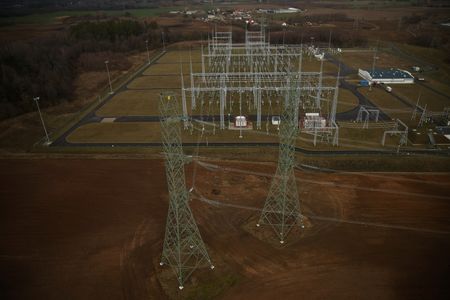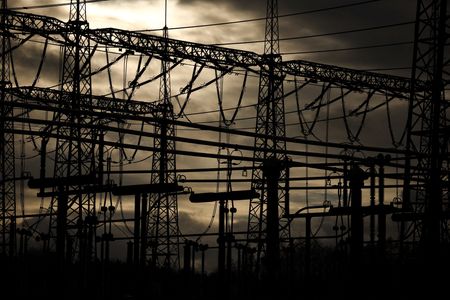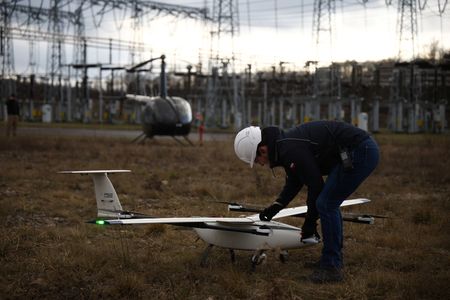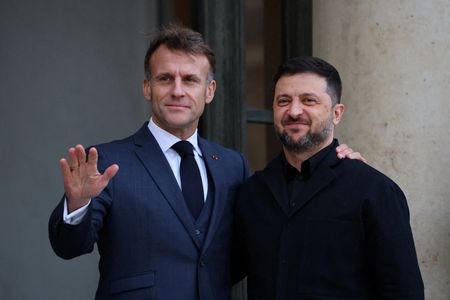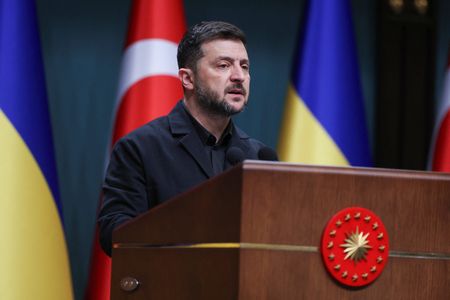By Andrius Sytas and Marek Strzelecki
VILNIUS (Reuters) – The Baltic states are set to sever ties with Russia’s power grid that date back to the 1950s, and instead integrate further with the European Union, as the suspected sabotage of subsea cables has spurred efforts to strengthen regional security.
Estonia, Latvia and Lithuania will disconnect from the IPS/UPS joint network early on Saturday and, subject to last-minute tests, they will synchronise with the EU’s grid on Sunday.
Plans to decouple from Russia’s grid, debated for decades, gained momentum following Moscow’s annexation of Crimea in 2014.
The three countries have spent nearly 1.6 billion euros ($1.66 billion) since 2018, largely tapping EU funds, to upgrade their grids to prepare.
For Russia, the decoupling means its Kaliningrad exclave, located between Lithuania, Poland and the Baltic Sea, will be cut off from Russia’s main grid, leaving it to maintain its power system alone.
Moscow has also had to spend 100 billion roubles ($1.03 billion) on preparations, including building several gas-fired power plants.
“We have taken all measures to ensure the uninterrupted, reliable operation of our electricity system,” the Kremlin’s spokesperson said.
UKRAINE INVASION
The countries have long relied on their former imperial overlord Russia to control frequencies and stabilise networks to avoid outages.
But in 2022, following Moscow’s invasion of Ukraine, the three staunch supporters of Kyiv took the first major step in switching toward the EU for power by halting purchases of electricity from Russia.
Ukraine hopes to join the EU and NATO, steps the Baltics took in 2004.
“Decoupling from Russia doesn’t make us vulnerable. On the contrary, it makes us safer,” Lithuania’s energy minister Zygimantas Vaiciunas told Reuters.
“At moments like these, threats are not decreasing. They should be expected. We are preparing for all eventualities, up to the most radical scenarios. And we have plans to manage every risk.”
The Baltic Sea region is on high alert after power cable, telecom links and gas pipeline outages between the Baltics and Sweden or Finland. All were believed to have been caused by ships dragging anchors along the seabed following Russia’s invasion of Ukraine.
The Estlink 2 subsea power link between Estonia and Finland was severed in December by what Finland said was an anchor of a tanker carrying Russian oil, which prompted a rise in power prices.
Russia denies involvement.
CRUCIAL LINKS
Decoupling from Russia makes the Baltics even more reliant on the subsea links between them.
“Damage to the infrastructure is the main worry. This is where the risks lie and that this is what the worst case scenario could be,” ICIS analyst Stefan Konstantinov said.
The Baltics’ links to Russia’s grid, which date back to 1956, meant Russia stabilised and supported their joint power system and that they could, if needed, purchase power from Russian coal- or gas-powered plants. That safety net is being removed.
For the EU, it also means its grid will have to absorb any disturbances in the Baltics that still rely on power imports via three subsea links with Sweden and Finland as well as an overground connection to Poland.
“The link between Poland and Lithuania is absolutely crucial … we are protecting it at any price,” a spokesperson for Polish grid operator PSE told Reuters.
“A couple of years ago, we only worried about trees falling on power lines. After the suspicious sea cables damage, all is different.”
SECURITY CONCERNS
The Estlink 2 incident spurred regional governments to review energy infrastructure security in the Baltics, Lithuania’s Vaiciunas told Reuters.
Poland and the Baltics have deployed navy assets, elite police units, patrol boats and helicopters to boost security. The Lithuanian military has begun drills to protect the overland connection to Poland.
Most notably, the NATO military alliance has boosted its presence with frigates, aircraft, and naval drones.
Damage to both remaining undersea cables would force Baltics to restart their outdated and expensive gas and shale oil plants that have largely sat idle for years.
Analysts say that could push power prices to levels not seen since the invasion of Ukraine, when energy prices soared.
Lithuanian grid operator Litgrid said all major Baltic power plants would need to be kept working if the subsea links were forced offline.
That could make baseload power prices jump to 200-500 euros per megawatt hour from the current 70-100 euros, utilities and analysts have estimated.
“We will not end up without electricity, but (the subsea link disruptions) would pose certain challenges to consumers, to the industry,” Latvian President Edgars Rinkevics told Reuters.
Domestically, the three countries have been busy planning for a smooth transition to the EU grid.
Lithuania’s energy ministry told Reuters it has drawn up contingency plans whereby some heavy energy users, such as factories, could be temporarily disconnected from the grid in the event of power shortages, to maintain essential supplies.
Indicating public anxiety about the switch, sales of diesel power generators increased tenfold in Estonia in January, public broadcaster ERR reported.
“Outages are very unlikely to occur, but just in case, be prepared to go without electricity for short periods”, the Estonian government said.
($1 = 97.1000 roubles)
($1 = 0.9634 euros)
(Reporting by Andrius Sytas in Vilnius, Marek Strzelecki in Warsaw, Essi Lehto in Helsinki, Forrest Crellin in Paris, Nerijus Adomaitis in Oslo, Janis Laizans in northeastern Poland, the Moscow bureau, editing by Michael Kahn, Nina Chestney, Jason Neely and Barbara Lewis)

